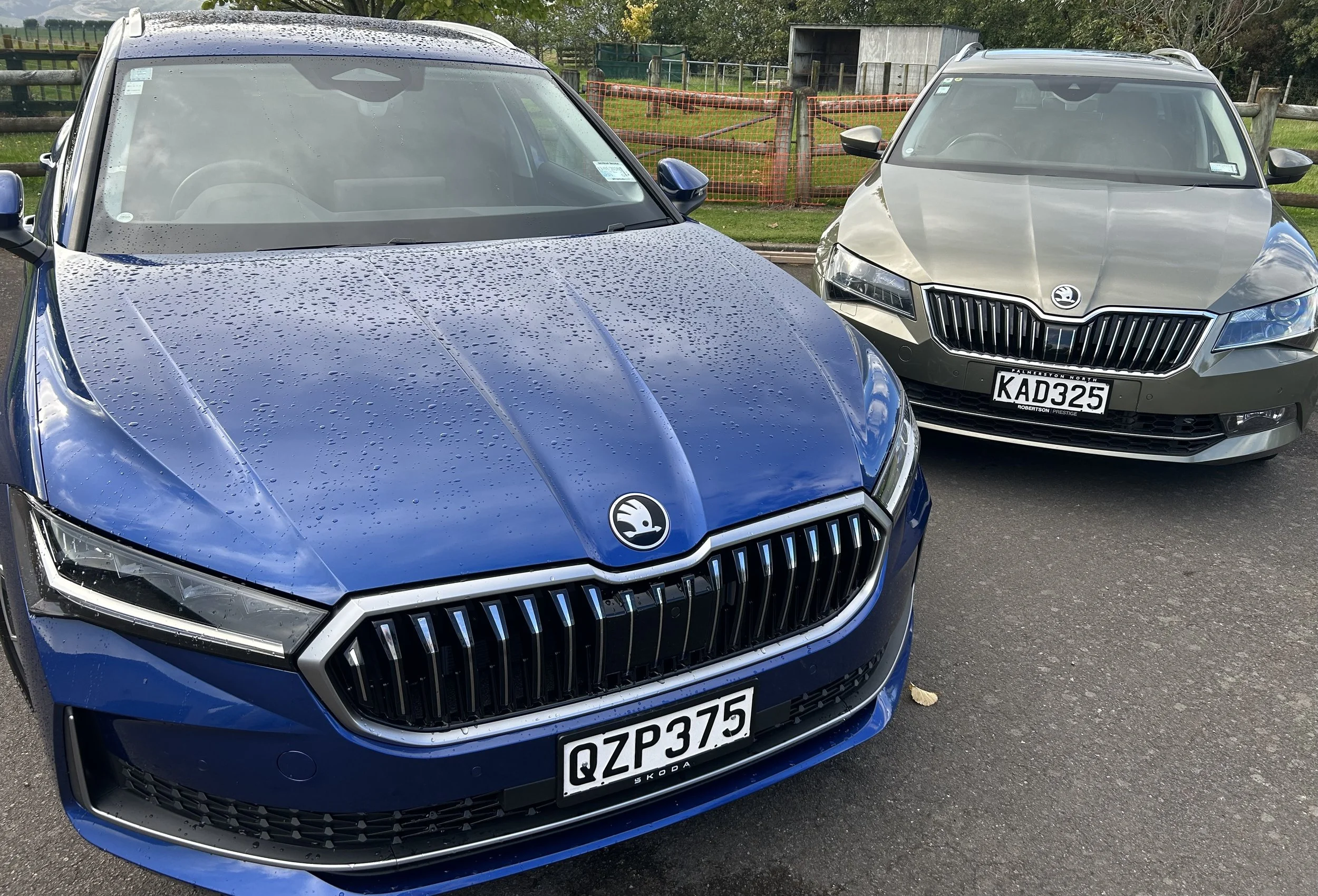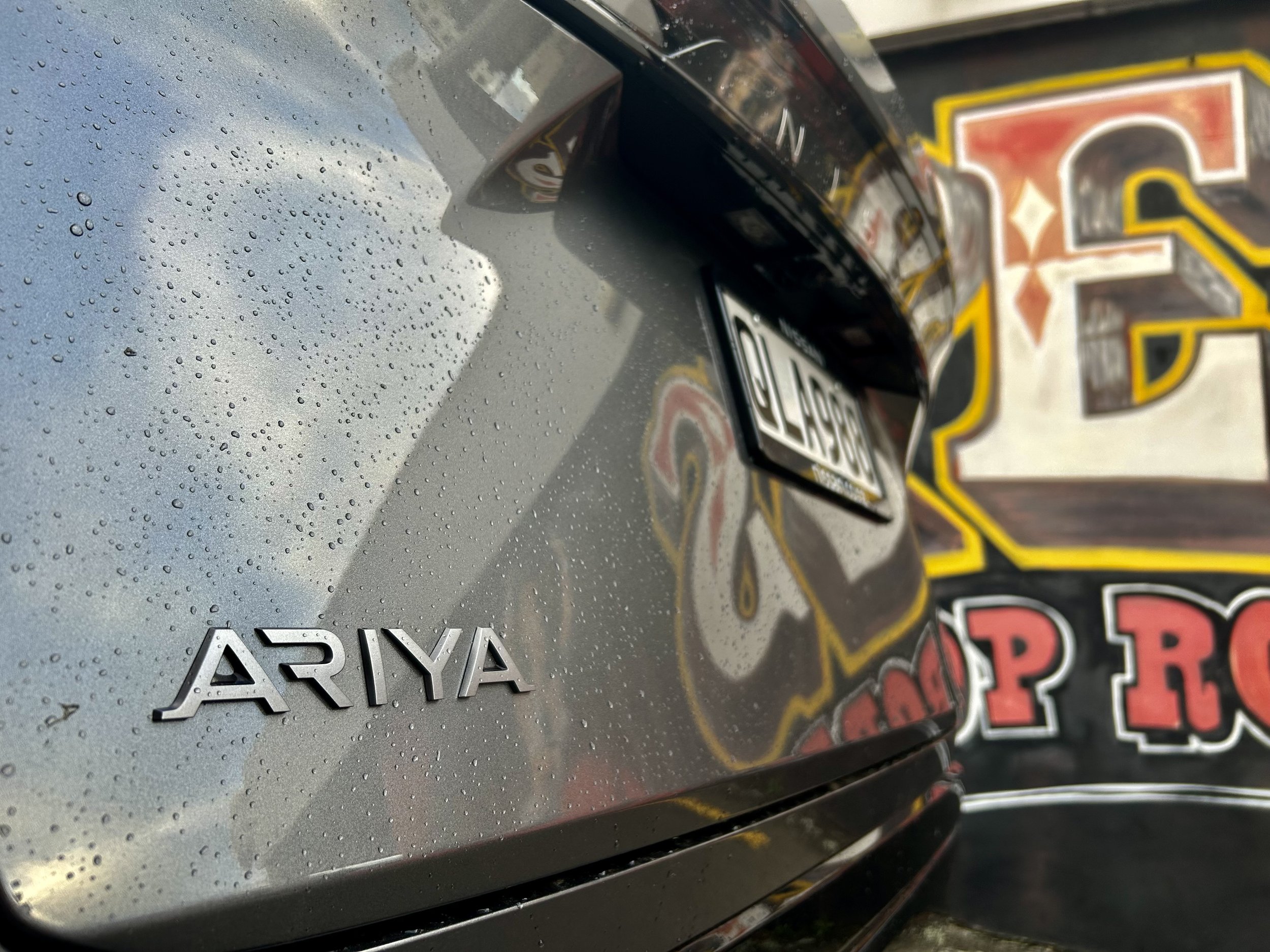Kiwis hot for juiced-up Jeep
/Still a year away from NZ, the world’s most potent SUV has already set to internet ablaze locally.
IMMEDIATE Kiwi ‘wanna-buy’ fervour for Jeep’s ultimate bad boy bog basher has deeply impressed the brand’s distributor.
David Smitherman, who heads FiatChrysler New Zealand, says domestic on-line feedback to the Trackhawk cements his conviction the new hotshot will be a searing seller when it enters the local showroom in 2018.
Much of the attraction, he agrees, rests on Jeep’s claim that the Grand Cherokee variant is the world’s most powerful sports utility – a mantle he reckons will still stand firm when it gets here in 2018.
Before Jeep’s claim, made in the run-up to Trackhawk’s full debut at last week’s New York motor show, where our photos were taken, this title was held by the far more exclusive and upmarket 449kW Bentley Bentayga.
“We know that it will be faster than the Bentley and, from what I hear about what is in the production line from other competitors – well, we feel it will be faster than them, too.”
NZ market price, the allocation level, the launch date … none of this has been sorted yet.
But he already thinks the NZ-new offer will outpace, in sales terms, the Dodge Challenger and Charger Hellcat cars whose force-fed 6.2-litre V8 is adopted by the Jeep.
Forty-two of those Dodge cars were privately imported to New Zealand last year. But those models – and the Challenger Demon that was shown at last week’s New York motor show – have no real chance of official representation here, because they are only built in left-hand drive.
“And those were all privately imported and sedans,” says Smitherman, who says he isn’t too concerned about only having Hellcat in its largest format.
“We’re talking about a SUV, a Jeep and a vehicle that is not only performance-oriented but can offer significant towing abilities, too. Everything about it fits for us, we think.”
With the sports utility sector looking so strong, the Jeep seems a really good proposition.
“It will be a massive shot in the arm for us and a massive opportunity. It will be highly sought after.”
He concurs it is reasonable to assume it will be comfortably above the $124,990 tag attached to the Grand Cherokee SRT, but also considers demand might nonetheless be so strong that the speculation that came with the Hellcat cars when they launched in North America three years ago might also occur here.
“The Hellcat Charger was so highly sought after that it sold from many US dealerships at a premium of $US10,000 above the regular retail when it released – that’s the kind of interest this sort of vehicle gets.
“It is a very positive vehicle and Kiwis are already expressing their desire for it.
“It (the SRT Grand) has been a very strong vehicle for us – it’s a hero vehicle for us. It takes about 10 percent of our volume … we sell about 10-15 a month. To some degree, that tells us what the Hellcat can do.”
The Hellcat power plant produces 527kW of power and a monstrous 874Nm of torque – a big step up from the current flagship SRT Grand which has a 324kW/624Nm 6.4-litre V8.
The new oomph will allow the 2.3 tonne rig to vanquish 0-100kmh in 3.6 seconds – or 1.3s quicker than the SRT - and cover the quarter mile in 11.9 seconds. Top speed is 290kmh.
The Demon, though, takes the madness even further, with monstrous outputs of 626kW and 1044Nm. It rockets from standstill to 100kmh in just 2.3 seconds, creating g-force acceleration of 1.8g and causing the front tyres to lift off the ground momentarily at take-off – a first for a production car.
The engine has 25 new component upgrades including the supercharger, pistons, rods, valve train and fuel injection system.
The Supercharger has grown 300cc to 2.7 litres, boost pressure has increased to 14.5psi from 11.6psi, the rpm limiter is up to 6500rpm from 6200rpm, two fuel pumps are used in place of a single pump, and air intake levels are increased thanks in part to a 45.2 square inch bonnet scoop – the largest of any production car.
Three different air intakes give the Demon an air-flow rate of 1150 cubic feet per minute, which is the largest air induction volume of any production car.
Other tweaks include a high-speed valvetrain, strengthened connecting rods and pistons, an improved lubrication system and a ‘Power Chiller’ liquid-to-air intercooler chiller system that diverts the air-conditioning refrigerant from the interior to cool the air being piped to the heat exchangers in the supercharger.
Dodge ensures that all modifications are deemed street legal, and power and torque ratings have been certified to the SAE J1349 industry standard.
The Demon rides on 18-inch wheels wrapped in massive 315/40R18 Nitto NT05R street-legal drag-spec radial tyres, that measure 12.6 inches wide and give the Demon 40 percent more launch force than the rubber on the SRT Hellcat.
A modified TorqueFlite eight-speed automatic transmission is fitted which delivers 18 percent more torque multiplication over the Hellcat, and includes a TransBrake feature that locks the transmission output shaft in place to let the engine rev to 2350rpm without overpowering the brakes, which allows for a more potent launch.
To truly test the SRT Demon’s drag ability it was taken to a drag strip to participate in a National Hot Rod Association (NHRA)-sanctioned quarter mile time trial, which it completed in just 9.65 seconds at 225kmh, making it the fastest quarter-mile production car in history.
After completing the sprint, the NHRA decided to ban the SRT Demon from competing in production drag races, because it lacks a roll cage. Anything that clocks less than 10s requires this.
Production of the Demon will begin in the coming months, with only 3000 units allocated to the US and 300 to Canadian fans.
All customers who purchase a Demon will be treated to one full-day session at a high-performance driving school.
To save weight, the passenger and rear seats, as well as the audio system, insulators and deadening material and parking sensors were removed, but buyers can option the seats back for $1 each.

















